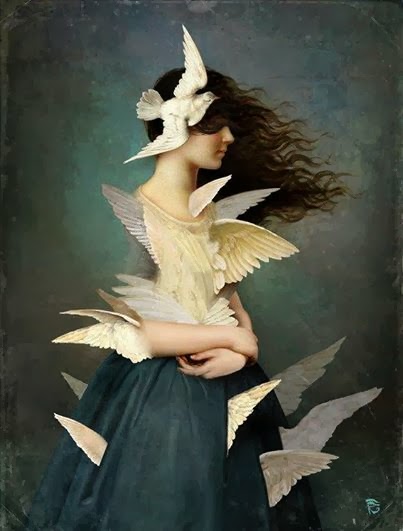This is a Swedish jazz singer with a quite unique voice - something which is surely true of many jazz vocalists. She died a few years ago in a fire at her home in Stockholm, Sweden.
For a Scandinavian, or rather the Swedish or Norwegian listener, she represents something in addition to the soft, smoky tones of her voice. She was one of the first to sing Swedish folk tunes in the framework of jazz, always honouring them with a simple yet personal style.
It's hard to explain why many Norwegian and Swedish folk tunes resonate so deeply with these countries' inhabitants - or they do with me, anyway. It's like a nostalgic longing for a time I haven't experienced but which is still whispering of its existence in my bones. In her interpretations of the Swedish folk tunes she knew so well, Zetterlund transmits a vulnerability and something close to melancholy which is blood deep and is hinting of a green, shadowy, spruce-clad foresty landscape that every Norwegian or Swede is familiar with. It's like these green shadows, the smell of moss, fir and spruce and everything coniferous evokes the Northern parts of our souls - the bright white light in summertime and the dark cold of the winters. Or, again, this may just be me. Anyway, I simply love Zetterlund's voice which is both cool and warm, soft and rough, and everything it hints at. Smoky jazz clubs and pine fresh air alike. The album I most strongly recommend is Waltz for Debby, a co-act with Bill Evans. This album was recorded on one afternoon in 1964 and she had to rush to a concert she was to give that same night. The author, filmmaker and comic Tage Danielsson captured her in verse in 1967. The following (in Swedish) is an excerpt from a longer poem called "Det eviga" (The eternal), and is both ethereally beautiful and almost brutally wild, just like our Northern nature - complete with a melancholy timbre:
En nattklubbsdrottning doftande av logar.
Ett lingonris som satts i cocktailglas.
En blond negress från Värmlands huldraskogar.
Monica Zetterlund. En jazzpaschas,
en sång som hejdar sej, till hälften hunnen,
och drar den där när Fröding satt på dass.
En väv, av guldbrokad och vadmal spunnen.
Men märk det vemodsdraget över munnen:
ett nordiskt sångardrag, en sorg i rosenjazz.
Danielsson clearly sees her inherent dicotomies, the mountain cranberry in a cocktail glass, a fabric both gold and hodden, and the sorrowful set of her mouth (which he explains as a familiar feature in Northern singers). The concluding line (hard to translate) sums her up expertly: A sorrow in a jazz of roses. This obviously refers to her "Jag vet en dejlig rosa" (I know of a beautiful rose) from Waltz for Debby. Just listen to it.










